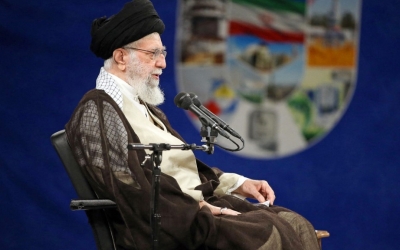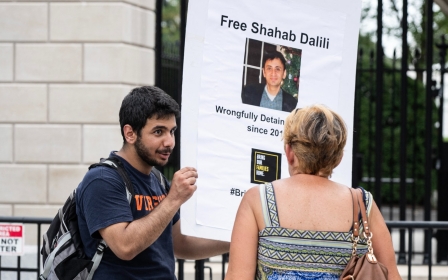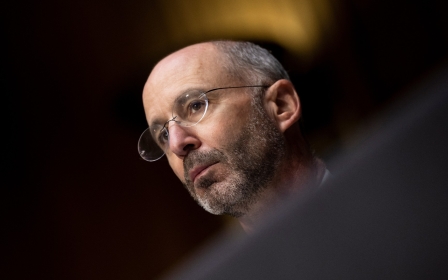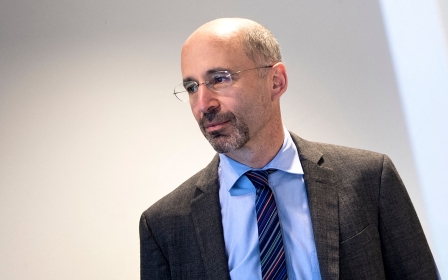Nuclear watchdog chief condemns Iran's 'unprecedented' barring of inspectors
New MEE newsletter: Jerusalem Dispatch
Sign up to get the latest insights and analysis on Israel-Palestine, alongside Turkey Unpacked and other MEE newsletters
UN nuclear watchdog chief Rafael Grossi on Saturday condemned Iran's "disproportionate and unprecedented" move to bar multiple inspectors assigned to the country, hindering its oversight of Tehran's atomic activities.
Iran's move is a response to a call led by the United States, Britain, France and Germany at the International Atomic Energy Agency's Board of Governors this week for Tehran to cooperate immediately with the IAEA on issues including explaining uranium traces found at undeclared sites.
Grossi made clear, however, that he believed Iran had overreacted.
"I strongly condemn this disproportionate and unprecedented unilateral measure which affects the normal planning and conduct of agency verification activities in Iran and openly contradicts the cooperation that should exist between the agency and Iran," he said in a statement.
Iran's move, known as "de-designation" of inspectors, is allowed; member states can generally veto inspectors assigned to visit their nuclear facilities under the nuclear Non-Proliferation Treaty (NPT) and each country's safeguards agreement with the agency governing inspections.
But the IAEA said Tehran's decision went beyond normal practice. It said Iran had told it that it would bar "several" inspectors, without giving a number.
"These inspectors are among the most experienced agency experts with unique knowledge in enrichment technology," the agency said. "With today's decision, Iran has effectively removed about one third of the core group of the Agency's most experienced inspectors designated for Iran."
Iran defended its move and accused the United States, Britain, France and Germany of politicising the IAEA watchdog.
"Unfortunately, despite Iran's positive, constructive and continuous interaction of the with the agency, the three European countries and the United States abused the (IAEA's) Board of Governors for their own political purposes," Foreign Ministry spokesperson Nasser Kanaani told state media.
"Of course, Iran will continue its positive cooperation within the framework of the agreements that have been made, and emphasise the necessity of the agency's neutrality," he added.
A Vienna-based diplomat said Iran had de-designated all the French and German members of the IAEA inspection team. There were already no US or British members.
"This measure, while formally permitted by the NPT Safeguards Agreement, has been exercised by Iran in a manner that affects in a direct and severe way the ability of the IAEA to conduct effectively its inspections in Iran," the IAEA said.
Grossi added: "I call upon the Iranian Government to reconsider its decision and to return to a path of cooperation with the Agency."
The US State Department did not immediately respond to a request for comment.
Middle East Eye delivers independent and unrivalled coverage and analysis of the Middle East, North Africa and beyond. To learn more about republishing this content and the associated fees, please fill out this form. More about MEE can be found here.





